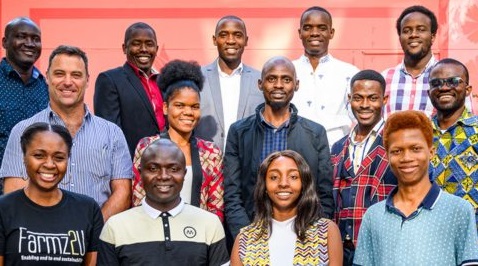Chinese consumer electronics company Honor is set to unveil its latest lineup of smart devices for the South African market. How about we forecast…
Africa Prize for Engineering Innovation 2020 shortlist announced

The UK’s Royal Academy of Engineering (RAEng) yesterday in Cape Town announced the names of 16 engineers and entrepreneurs who have been shortlisted for the 2020 Africa Prize for Engineering Innovation.
The initiative claims to be Africa’s biggest prize dedicated to engineering innovation. It awards crucial commercialisation support to ambitious African innovators who are developing engineering solutions to local challenges.
The prize is sponsored by The Shell Centenary Scholarship Fund and the UK Government’s Global Challenges Research Fund.
The academy said in a statement yesterday that a unique package of support will be provided to the 16 shortlisted innovators over the next eight months to help them accelerate their businesses.
The Africa Prize for Engineering Innovation 2020 winner will receive £25k
The benefits of selection include comprehensive and tailored business training, bespoke mentoring, funding and access to the academy’s network of high profile, experienced engineers and business experts in the UK and across Africa.
Following this period of support, four finalists will be selected and invited to pitch their improved innovation and business plan to the judges and a live audience.
The Africa Prize for Engineering Innovation 2020 winner will receive £25 000 while three runners will each be awarded £10 000.
The prize’s judges and mentors are: EngineeringUk and Energy Institute president Malcolm Brinded, Lonadek Consulting founder and principal consultant Ibilola Amao, AppsTech founder and CEO Rebecca Enonchong, #iamtheCODE and SpotOne Global Solutions founder and Africa Gathering co-founder Mariéme Jamme, and angel investor and tech startup mentor John Lazar.
The 2020 shortlist represents six countries, including, for the first time, Malawi. In addition, six of the 16-strong shortlist are female innovators.
The 16 are:
- Aquaprotein, Jack Oyugi (Kenya): An affordable protein supplement for animal feed, made from invasive water hyacinth
- Bace API, Charlette N’Guessan (Ghana): A system that uses live facial recognition technology to verify identities and prevent financial and online identity fraud
- Cathel, Catherine Tasankha Chaima (Malawi): An affordable antibacterial soap made from agricultural waste and other plant-based extracts
- Cist Ethanol Fuel, Richard Arwa (Kenya): A clean cooking ethanol made from invasive water hyacinth
- DryMac, Adrian Padt (SA): A containerised drying system that uses burning biomass instead of electricity to dry and preserve crops
- Eco Water Purifier, Timothy Kayondo (Uganda): A digital system that turns bones, cassava peelings, coconut shells and other waste into an activated carbon water filter
- EcoRide, Bernice Dapaah (Ghana): Bamboo bicycles made by Ghanaian women and youth from sustainable materials and recycled parts
- Farmz2U, Aisha Raheem (Nigeria): Tech solutions that help farmers and families prevent food waste and enhance nutrition
- Garbage In Value Out (Givo), Victor Boyle-Komolafe (Nigeria): Automates and digitises the collection, processing and sale of recyclable materials
- GrainMate, Isaac Sesi (Ghana): A simple handheld meter that accurately measures the moisture content of grains to prevent rotting, insect infestation and quality reduction
- Lab and Library on Wheels, Josephine Godwyll (Ghana): Mobile, solar-hybrid cart with gadgets and e-learning resources to encourage reading and teach Science Technology Engineering Art and Mathematics (STEAM) subjects in under-resourced schools
- PapsAI, William Wasswa (Uganda): Low-cost digital microscope slide scanner and platform that diagnoses and manages cervical cancer in resource-constrained areas
- Remot, David Tusubira (Uganda): Digital platform that connects to off-grid solar systems to allow users to manage and pay for them remotely
- Safi Organics, Samuel Rigu (Kenya): Chemical process that turns crop waste into a range of affordable fertilisers
- Solar Jiko, Justine Abuga (Kenya): Heat storage system that allows rural schools to cook food quickly and easily without firewood
- Tree_Sea.mals Mini-Grid, Tracy Kimathi (Kenya): Solar-powered system that powers communal refrigeration storage spaces in rural Kenya
Read more: SA’s Neo Hutiri wins £25k in 2019 Africa Prize for Engineering Innovation
Read more: Ugandan behind malaria test kit wins Africa Prize for Engineering Innovation
Featured image: Some of the innovators shortlisted for the Africa Prize for Engineering Innovation 2020 (RAEng)

